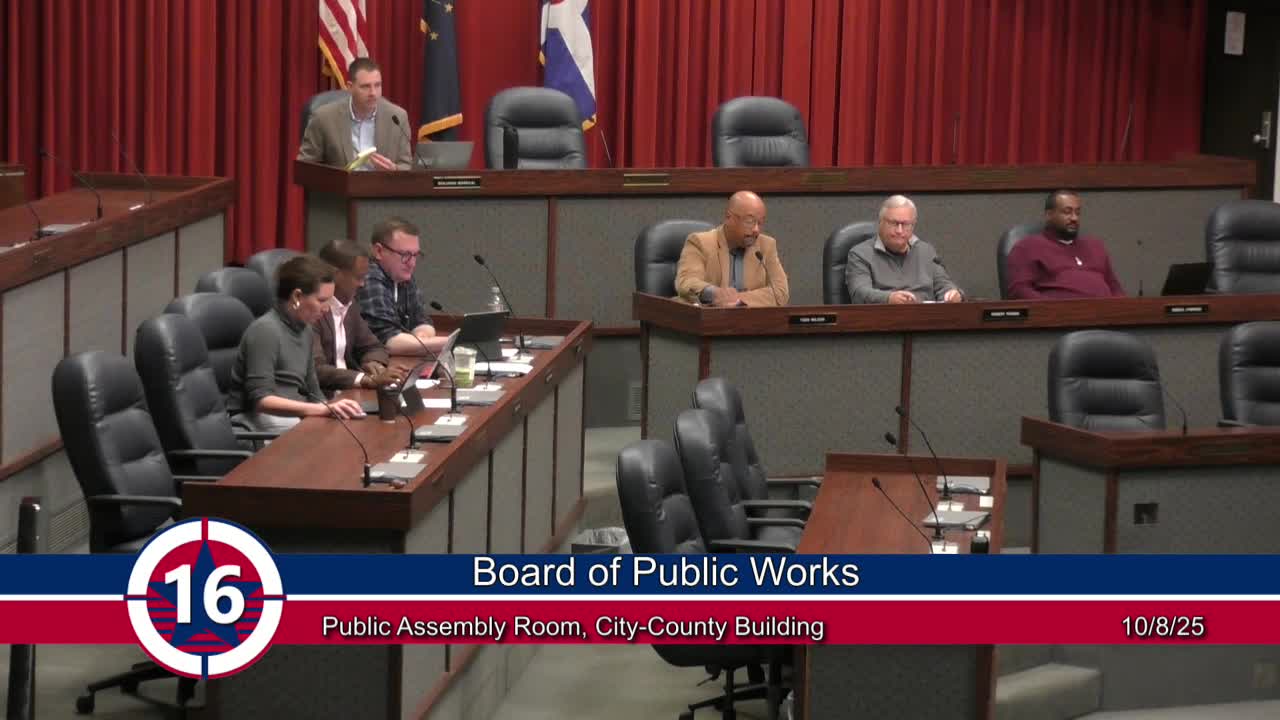Board of Public Works approves $300,000 payment to ease city trash‑cart transition
Get AI-powered insights, summaries, and transcripts
Subscribe
Summary
The Board of Public Works approved an amendment to contract 21593 on Oct. 8 authorizing a one‑time $300,000 payment to Lakeshore Recycling Systems to help cover costs of removing existing vendor carts and servicing newly deployed city‑branded carts during October–December 2025.
The Indianapolis Board of Public Works on Oct. 8 approved an amendment to city‑county contract 21593 that provides a one‑time payment of $300,000 to Lakeshore Recycling Systems (LRS) to help defray costs of cart removal and servicing during the citywide rollout of new, city‑branded trash carts.
The amendment covers additional costs LRS will incur while deploying new carts to roughly 155,000 households in vendor‑collected districts and picking up existing carts that were branded and owned by incumbent haulers. Sam Barris, speaking for the Department of Public Works (DPW), said the payment was intended to make the transition “go as smoothly as possible.”
Why it matters: DPW replaced vendor‑branded carts with city‑owned carts as part of contracts awarded earlier this year; the city‑branded carts will be owned by the city at the end of a 10‑year period. Incumbent vendor carts remain the property of those companies, and DPW said the contractual responsibility for removing those carts lies with the incumbent haulers. Sam Barris told the board DPW negotiated a practical compromise to avoid long periods when residents would have multiple carts at their homes.
DPW told the board the March contract awards put LRS in place to service the new carts as they are delivered. Because the replacement involves tens of thousands of households, DPW negotiated with the vendors so LRS could both deliver new carts and promptly collect the existing carts in many areas. Barris said the city, LRS and the incumbent vendors agreed to split the extra removal costs so the swap would not leave residents with duplicate carts for months.
Barris said the amendment funds will also help LRS cover repair and replacement costs this quarter that were not contemplated in the original contract. He added that LRS will facilitate repairs or replacements for new city carts that are damaged or stolen during the transition period. On the question of whether the contract values for incumbent vendors would be reduced, Barris said there is no reduction to those contract amounts; instead, incumbents are contributing financially to the cost‑sharing arrangement in some districts.
DPW has asked residents to leave their old carts out at the curb for a short pickup window — generally two to three weeks — and acknowledged that the exact pickup timing will vary by neighborhood. Barris acknowledged the risks of leaving carts at the curb and said DPW is trying to minimize the time both carts are present. He said staff will monitor transition‑related service requests and urged board members to relay constituent concerns.
The board approved the amendment by voice vote.
